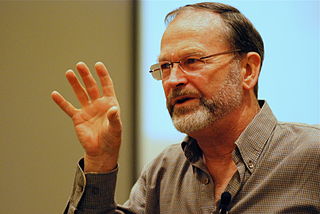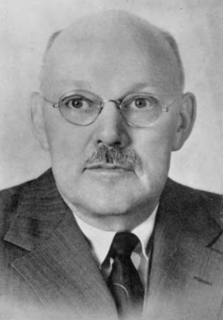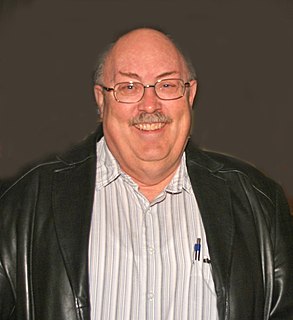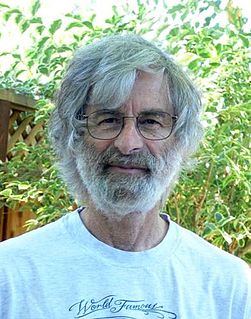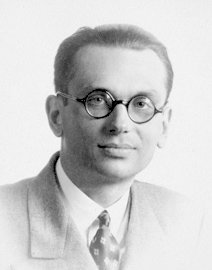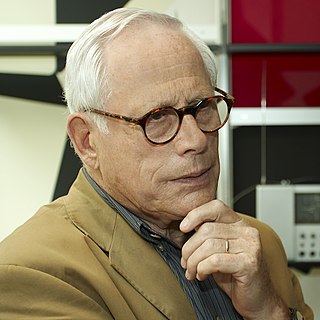Top 1155 Relatively Quotes & Sayings - Page 19
Explore popular Relatively quotes.
Last updated on April 22, 2025.
Writing a book about [Buckminster Fuller] in the sense of deciding how much to - how much biographically to gloss over and how much I can leave out is relatively easy as it is because the true believers already know everything. They know a lot of things that are not true and they know a lot of things that I thought were (and seems there's very good evidence not to believe) and therefore, my starting point was I think to tell his myth because that's what grabbed me.
One of the reasons that so many people of color and poor people are in prison is that the deindustrialization of the economy has led to the creation of new economies and the expansion of some old ones – I have already mentioned the drug trade and the market for sexual services. At the same time, though, there are any number of communities that more than welcome prisons as a source of employment. Communities even compete with one another to be the site where new prisons will be constructed because prisons create a significant number of relatively good jobs for their residents
If we understand the mechanisms and motives of the group mind, it is now possible to control and regiment the masses according to our will without their knowing it In almost every act of our daily lives, whether in the sphere of politics or business, in our social conduct or our ethical thinking, we are dominated by the relatively small number of persons who understand the mental processes and social patterns of the masses. It is they who pull the wires which control the public mind.
Gold is not less but more rational than paper money. Money holds value so long as it is in limited supply; gold will always be in limited supply, and would require real resources to produce even from the sea; paper and printing ink are not in limited supply. The gold system is much closer to a modern automatic scientific control system than the crude and relatively unstable system of paper.
The idea that a relatively fixed group of privileged people might shape the economy and government for their own benefit goes against the American grain. Nevertheless, the owners and top-level managers in large income-producing properties are far and away the dominant power figures in the United States. Their corporations, banks, and agribusinesses come together as a corporate community that dominates the federal government in Washington. Their real estate, construction, and land development companies form growth coalitions that dominate most local governments.
We believe that almost all really good investment records will involve relatively little diversification. The basic idea that it was hard to find good investments and that you wanted to be in good investments, and therefore, you'd just find a few of them that you knew a lot about and concentrate on those seemed to me such an obviously good idea. And indeed, it's proven to be an obviously good idea. Yet 98% of the investing world doesn't follow it. That's been good for us.
Even with all that - excellent treatment, wonderful family and friends, supportive work environment - I did not make my illness public until relatively late in life, and that's because the stigma against mental illness is so powerful that I didn't feel safe with people knowing. If you hear nothing else today, please hear this: There are not 'schizophrenics'. There are people with schizophrenia, and these people may be your spouse, they may be your child, they may be your neighbor, they may be your friend, they may be your coworker.
At that moment he knew what his mother was thinking, and that she loved him. But he knew, too, that to love someone means relatively little; or, rather, that love is never strong enough to find the words befitting it. Thus he and his mother would always love each other silently. And one day she--or he--would die, without ever, all their lives long, having gone farther than this by way of making their affection known.
Of course my moods change, but the average is serenity. I have a firm faith in art, a firm confidence in its being a powerful stream which carries a man to a harbor, though he himself must do his bit too; at all events, I think it such a great blessing when a man has found his work that I cannot count myself among the unfortunate. I mean, I may be in certain relatively great difficulties, and there may be gloomy days in my life, but I shouldn't like to be counted among the unfortunate, nor would it be correct if I were.
True religion is a universal and (necessarily) ego-transcending psycho-physical motivation of human beings. However, up to the present stage in human history, only relatively few individuals in any generation have been willing and able to make the gesture that is true religion (or, otherwise, true esotericism). In their great numbers, most people have, up to now, never yet been ready or willing to adapt to the true (and progressive) practical, moral, devotional, Spiritual, and Transcendental Wisdom-culture of right life.
Pain is a relatively objective, physical phenomenon; suffering is our psychological resistance to what happens. Events may create physical pain, but they do not in themselves create suffering. Resistance creates suffering. Stress happens when your mind resists what is... The only problem in your life is your mind's resistance to life as it unfolds.
We have reversed the usual classical notion that the independent "elementary parts" of the world are the fundamental reality, and that the various systems are merely particular contingent forms and arrangements of these parts. Rather, we say that inseparable quantum interconnectedness of the whole universe is the fundamental reality, and that relatively independent behaving parts are merely particular and contingent forms within this whole.
Domestic and supranational regulatory capture leads to two things: on the one hand, to an inequality spiral where the rich get richer because they can influence rulemaking and rule application in their favor; on the other hand, it also leads to instability. This is so because the relatively few organizations capable of influencing supranational rulemaking through the lobbying of major governments have diverse interests. This will, in some cases, lead to compromises. But it will also lead to spheres of influence.
I wrote 'Turn Your Radio On' in 1937, and it was published in 1938. At this time radio was relatively new to the rural people, especially gospel music programs. I had become alert to the necessity of creating song titles, themes, and plots, and frequently people would call me and say, 'Turn your radio on, Albert, they're singing one of your songs on such-and-such a station.' It finally dawned on me to use their quote, 'Turn your radio on,' as a theme for a religious originated song, and this was the beginning of 'Turn Your Radio On' as we know it.
By the time Kafka was seven or eight years old, he already had a relatively dark view of the world derived from experiences in his own family. This told him that the world was organized in a strictly hierarchical manner and that those on the top were allowed to mete out punishment in any way they chose. They were entitled to leave those on the bottom uninformed about the rules to which they subscribed; they weren't even required to follow their own rules - this is how Kafka described it in his later Letter to My Father.
I don't know that there has ever been a time when Abraham Lincoln didn't stand head-and-shoulders above all other presidents in the historians' eye. But relatively speaking, there have been peaks and a troughs. One peak was in the 1910s-20s; a major trough was in the 1970s-80s. We are certainly on a peak again, something which began in 1994 with Michael Burlingame's 'The Inner World of Abraham Lincoln,' which showed in fabulous detail how many new and untapped sources were available on Lincoln.
It is possible to enjoy the Mozart concerto without being able to play the clarinet. In fact, you can learn to be an expert connoisseur of music without being able to play a note on any instrument. Of course, music would come to a halt if nobody ever learned to play it. But if everybody grew up thinking that music was synonymous with playing it, think how relatively impoverished many lives would be. Couldn't we learn to think of science in the same way?
Nowadays I imagine people find freer and more accepting venues in blogs, on Tumblr and Instagram and Facebook, in the riot of shouting that trails in the wake of every news story. So there's always the pandemonium of the Internet, if you need to get your lunatic opinions out in public. I find most of that stuff a little insane-making and my preference is to encounter personal essays in the relatively sedate and stable universe of print, in literary quarterlies, magazines and books. But I'm sure you can find plenty of good stuff in lonely outposts all across the World Wide Web.
The difference between you, if you consider yourself not enlightened, and an enlightened master is not that the enlightened master has more knowledge. University professors have knowledge, and many enlightened masters have very little knowledge. Jesus probably had less knowledge than any university professor alive today in terms of raw information. Even a relatively uneducated person has more information than Jesus or Buddha ever had about things, such as political things and so on.
That eating should be foremost about bodily health is a relatively new and, I think, destructive idea-destructive not just the pleasure of eating, which would be bad enough, but paradoxically of our health as well. Indeed, no people on earth worry more about the health consequences of their food choices than we Americans-and no people suffer from as many diet-related problems. We are becoming a nation of orthorexics: people with an unhealthy obsession with healthy eating.
Although we like to think of young children's lives as free of troubles, they are in fact filled with disappointment and frustration. Children wish for so much, but can arrange so little of their own lives, which are so often dominated by adults without sympathy for the children's priorities. That is why children have a much greater need for daydreams than adults do. And because their lives have been relatively limited they have a greater need for material from which to form daydreams.
... the cooperative forces are biologically the more important and vital. The balance between the cooperative and altruistic tendencies and those which are disoperative and egoistic is relatively close. Under many conditions the cooperative forces lose, In the long run, however, the group centered, more altruistic drives are slightly stronger. ... human altruistic drives are as firmly based on an animal ancestry as is man himself. Our tendencies toward goodness... are as innate as our tendencies toward intelligence; we could do well with more of both.
I think that the current climate enables a lot of musicians to do relatively well. Twenty-five years ago, you could be a bass player in a folk-rock band and do pretty well - that sort of means that you're going to have to go get a day job. But a lot of my friends have learned how to write classical music for movies and produce other people and do remixes, and DJ and go on tour, and do all these different things. The more diverse their approach, the better their chances of actually having a career.
I'm surprised how often I'm asked about being a man with a woman narrator. I'm not the first, nor will I be the last. It's been done forever, but we seem to forget that. The whole notion of "write what you know" is not just boring, but wrong. Lately it seems like every novel has to be a memoir. I'm a boring person, but I'm a writer with a relatively vivid imagination. And when people ask me about how I find the voice of a woman, I tell them that my life is run by women.
The American farmer, whose holdings were not so extensive as those of the grandee nor so tiny as those of the peasant, whose psychology was Protestant and bourgeois, and whose politics were petty-capitalist rather than traditionalist, had no reason to share the social outlook of the rural classes of Europe. In Europe land was limited and dear, while labor was abundant and relatively cheap; in America the ratio between land and labor was inverted.
I'm not sure a person ever really reveals the whole of himsels or herself to another person, and I'm not sure we should. Or rather, just because you don't, it doesn't mean you can't have a meaningful relationship with another person. It's important to remember that this idea of confessing your most shameful, embarrassing stories and self to someone else as an expression of love and intimacy is a relatively recent phenomenon, and a new definition of what it means to be close to someone. After all, the self is by its nature secretive.
When someone really hears you without passing judgment on you, without trying to take responsibility for you, without trying to mold you, it feels damn good. . . . When I have been listened to and when I have been heard, I am able to re-perceive my world in a new way and to go on. It is astonishing how elements which seem insoluble become soluble when someone listens. How confusions which seem irremediable turn into relatively clear flowing streams when one is heard.
The great thing about the Internet is - our show is totally modular. Every piece can be popped in and out. They're relatively short pieces. They're not long. And we can say, "here' s one way to market it. Take these pieces out of the show and put them on the Internet." And we're doing dirtier cuts and put those on the Internet. It's a real great way to market the show. This is finally the year a show like this can happen.
I have a romantic comedy I'd love to make, but I can't get the money for it. It's hard to get people to give you money for an arty romantic comedy when you've done a horror movie. So I can just sit there and keep complaining about that, or I can go make another horror movie this year. People will get behind me on that, because I'm relatively bankable. As long as I can do my own thing with it, I'll keep doing it.
We're dealing with music that is being played by traditional instruments in a specifically built building called a concert hall.
But classical is not - the reference is wrong, because classical on one hand refers to one period in musical history, which is Mozart, Hayden, Beethoven, which is a fine period in musical history, but it was a while ago.On the other hand, it sort of alludes to some kind of "class," which A, is not true; B, is kind of detrimental to the whole idea. Because the point is that this music is available and it's actually relatively reasonably priced.
The appeal of the spectrally macabre is generally narrow because it demands from the reader a certain degree of imagination and a capacity for detachment from every-day life. Relatively few are free enough from the spell of the daily routine to respond to rappings from outside, and tales of ordinary feelings and events, or of common sentimental distortions of such feelings and events, will always take first place in the taste of the majority; rightly, perhaps, since of course these ordinary matters make up the greater part of human experience.
The State did not originate in any form of social agreement, or with any disinterested view of promoting order and justice. Far otherwise. The State originated in conquest and confiscation, as a device for maintaining the stratification of society permanently into two classes-an owning and exploiting class, relatively small, and a propertyless dependent class. . . . No State known to history originated in any other manner, or for any other purpose than to enable the continuous economic exploitation of one class by another.
Our intellectual powers are rather geared to master static relations and that our powers to visualize processes evolving in time are relatively poorly developed. For that reason we should do (as wise programmers aware of our limitations) our utmost to shorten the conceptual gap between the static program and the dynamic process, to make the correspondence between the program (spread out in text space) and the process (spread out in time) as trivial as possible.
It seems that the more places I see and experience, the bigger I realize the world to be. The more I become aware of, the more I realize how relatively little I know of it, how many places I have still to go, how much more there is to learn. Maybe that's enlightenment enough - to know that there is no final resting place of the mind, no moment of smug clarity. Perhaps wisdom, at least for me, means realizing how small I am, and unwise, and how far I have yet to go.
In Kenya, one of our biggest exports is coffee. Where do you grow coffee? You grow coffee in the land. To be able to grow coffee you need rain, you need special kinds of soils that are found on hillsides, and that means you have to protect that land from soil erosion so you don't lose the soil. You also want to make sure that when the rains come you're going to be able to hold that water and have it go into the ground so that the streams and the rivers keep flowing and the ground is relatively humid for these plants.
Virtually all student debt in the US is now held by the federal government. It would therefore be a relatively simple matter to forgive some, if not all of it. This would enable young people to transition much more easily into creating their own households and families. At the same time, if the government is going to enact a major program of student debt forgiveness, it should be at least equally committed to relieving the heavy mortgage debt burdens still carried by tens of millions of non-affluent households in the aftermath of the 2007-09 financial crash and Great Recession.
I think it's important that when people are struggling, that you not run away from them if you love them. Kristen, I mean, I look at the room tonight, you know, Kristen Stewart and Claire Danes, Jennifer Lawrence, all these young women that I worked with who basically were child actors like I was a child actor. And then I feel very protective of them, because even though I think I have managed to get through the process relatively sanely, I have my scars, and I hope to be in some ways a member of their family that's out there protecting them.
Fiction -- at least for me -- requires long, relatively uninterrupted time stretches in which to bring it to fruition. I've never been a two-hour-in-the-morning writer, who could put in another six hours on Sunday afternoon. For me, a novel requires weeks of living in a largely mental and wholly internal landscape. Everything else has to be relegated to the odd hour here, the bit of time there. Sadly, however, uninterrupted time blocks are not what life doles out today to any of us with regularity.
Horses in the Book of Mormon would be another. You have relatively few mentions of horses, but there are some, and we don't know exactly how they were used; they don't seem to be all that common. Were they horses as we understood them, [or] does the term describe some other animal? Languages don't always and cultures don't always classify things the way we would expect. We have what we call common-sense ways of doing it. They're not common sense; they're just ours. But again, we don't have a strong case there. We're just problem solving there.
Most people believe that inequality is rising - and indeed it has been rising for a while in a number of rich countries. And there is lots of talk and realization of this. It's harder to understand that at the same time, you can actually have global inequality going down. Technically speaking, national inequality can increase in every single country and yet global inequality can go down. And why it is going down is because very large, populous, and relatively poor countries like India and China are growing quite fast.
The young adult literature is relatively new - it just kind of exploded in the 2000s. When I grew up, there weren't bookstores with sections dedicated to teen lit, nor was my generation raised reading books written specifically for us. Because of that, today we still think of books for teens as children's books and so when you write a book that includes sensitive topics, it just seems even more controversial. What's troubling to me about that is these are issues adults know that teens deal with. Not writing about them makes them something we don't, or can't talk about.
Society never progresses because the majority one day wakes up and says, “Let’s do things differently.” The majority didn’t wake up and say, “Oh, let’s just free the slaves.” ... Society always progressed because a relatively small group of people — usually considered outrageous radicals by the status quo of their time — had a better idea and articulated another way. That’s simply how evolution works; it’s the mutation — the member of the species who does things differently - that points the way to the future because they’re better adapted for survival.
There is a race between the increasing complexity of the systems we build and our ability to develop intellectual tools for understanding their complexity. If the race is won by our tools, then systems will eventually become easier to use and more reliable. If not, they will continue to become harder to use and less reliable for all but a relatively small set of common tasks. Given how hard thinking is, if those intellectual tools are to succeed, they will have to substitute calculation for thought.
The selection process has been powerful enough to produce one indisputable outcome: the family is a universal human institution. . . . In virtually every society into which historians or anthropologists have inquired, one finds people living together on the basis of kinship ties and having responsibility for raising children. . . . Even in societies where men and women have relatively unrestricted sexual access to one another beginning at an early age, marriage is still the basis for family formation. It is desired by the partners and expected by society.
The development of mathematics toward greater precision has led, as is well known, to the formalization of large tracts of it, so that one can prove any theorem using nothing but a few mechanical rules... One might therefore conjecture that these axioms and rules of inference are sufficient to decide any mathematical question that can at all be formally expressed in these systems. It will be shown below that this is not the case, that on the contrary there are in the two systems mentioned relatively simple problems in the theory of integers that cannot be decided on the basis of the axioms.
I firstly don't think of myself as an activist, I never have. I always say that, I think this word "activist" is relatively recent one. I don't remember when people started being called that or what it means. It reduces both writers and activists, it makes it seem as though a writer's job is to just keep people entertained with best-selling books and the activist's job to keep on repeating the same thing without a great deal of subtlety and intelligence. I don't think either is the case.
The idea is not to get to a conclusion if the Democrats and the media have their way. Now, arguing against - other than common sense. Arguing against a relatively quick conclusion here is that this investigation will include whatever has been done or not done by Michael Flynn. And if the special counsel decides that there need to be indictments, well, then you can forget about a quick wrap-up to anything. If there are indictments, subpoenas, investigations, if there's gonna be trials, then you can throw rapidity out the window.
Today we are again witnessing the emergence of transnational elites ... [Whose] ties cut across national boundaries ...It is likely that before long the social elites of most of the more advanced countries will be highly internationalist or globalist in spirit and outlook ... The nation-state is gradually yielding its sovereignty... Further progress will require greater American sacrifices. More intensive efforts to shape a new world monetary structure will have to be undertaken, with some consequent risk to the present relatively favorable American position.
I think in some ways people kind of hate it, but most models recognize that it's a pretty easy job to make a lot of money at in a relatively short time, and you get to travel the world and meet a lot of interesting people. There are extreme highs and extreme lows. I think if it were as clear-cut as "models hate it," then they wouldn't do it. I really enjoyed a lot of the actual aspects of it, but not enough to make it my primary job. It can be quite empty, which is why I pursued other things.
I want a room that I can definitely pack out. I don't want to sweat that part, "Am I gonna have enough people?" So I usually pick like a hundred, a relatively small room. Also, I'm looser in a small room. I don't want to record an album in front of a thousand people, not that I could draw a thousand, but I just want a room that I can really work back to front. That's just a very comfortable place for me to be loose.
The second reason why we haven't observed the growing gap is that our historical and social science analyses have concentrated on what has been happening within the 'middle classes' - that is, to that ten to fifteen percent of the population of the world-economy who consumed more surplus than they themselves produced. Within this sector there really has been a relatively dramatic flattening of the curve between the very top (less than one percent of the total population) and the truly 'middle' segments, or cadres (the rest of the ten to fifteen percent).
The first thing to say is that the ordinary criminal law in this country, the Human Rights Act, the Children's Act, all of the laws of the country take precedence, but what I'm also saying is that within the context of a secular country, which Britain now kind of is, or at least a country which purports to be relatively equal between religions, there should be some scope for allowing faith communities to govern themselves - subject to it being consensual and subject to everyone's human rights being observed.
If the world is an aggregate of relatively independent regions, then any assumption of universal laws is false and a demand for universal norms tyrannical: only brute force (or seductive deception) can then bend the different moralities so that they fit the prescriptions of a single ethical system. And indeed, the idea of universal laws of nature and society arose in connection with a life-and-death battle: the battle that gave Zeus the power over the Titans and all other gods and thus turned his laws into the laws of the universe.
The misconception that there is serious disagreement among scientists about global warming is actually an illusion that has been deliberately fostered by a relatively small but extremely well-funded cadre of special interests, including Exxon Mobil and a few other oil, coal, and utilities companies. These companies want to prevent any new policies that would interfere with their current business plans that rely on the massive unrestrained dumping of global warming pollution into the Earth's atmosphere every hour of every day.
I am troubled by the devaluing of the word 'design’. I find myself now being somewhat embarrassed to be called a designer. In fact I prefer the German term, Gestalt-Ingenieur. Apple and Vitsoe are relatively lone voices treating the discipline of design seriously in all corners of their businesses. They understand that design is not simply an adjective to place in front of a product’s name to somehow artificially enhance its value. Ever fewer people appear to understand that design is a serious profession; and for our future welfare we need more companies to take that profession seriously.
The study of eugenics had its beginning in Germany, sometime after the mid-19th century mark, stimulated by volkish concerns for Aryan racial purity. Rudolf Virchow, pathologist and politician, began a study of national ethnic statistics in 1871, convinced that the majority of Germans would prove to be of relatively pure Nordic descent. The results of his studies proved otherwise. According to Virchow, the obvious solution was to set about Nordicizing the debased German stock.
A Chinese paleontologist lectures around the world saying that recent fossil finds in his country are inconsistent with the Darwinian theory of evolution. His reason: The major animal groups appear abruptly in the rocks over a relatively short time, rather than evolving gradually from a common ancestor as Darwin's theory predicts. When this conclusion upsets American scientists, he wryly comments: "In China we can criticize Darwin but not the government. In America you can criticize the government but not Darwin."
White Hot Concentration is the unappreciated fruit of hard ligting, especially squats. When your in the squat rack, with a serious amount of weight overhead, your life literally depends on maintaining concentration. You learn to block out the swirling images in the mirror, the obnoxious chatter of the people next to you, the fat drop of sweat running down your nose. Once you've mastered this concentration in the weight room, duplicating it on the race course is relatively easy. Champions have only a few things in common. One weapon they all possess is White Hot Concentration.
Pace yourself in your reading. A little bit every day really adds up. If you read during sporadic reading jags, the fits and starts will not get you anywhere close to the amount of reading you will need to do. It is far better to walk a mile a day than to run five miles every other month. Make time for reading, and make a daily habit of it, even if it is a relatively small daily habit.
Alexia had found pregnancy relatively manageable, up to a point. That point having been some three weeks ago, at which juncture her natural reserves of control gave way to sentimentality. Only yesterday she had ended breakfast sobbing over the fried eggs because they looked at her funny. The pack had spent a good half hour trying to find a way to pacify her. Her husband was so worried he looked to start crying himself.



